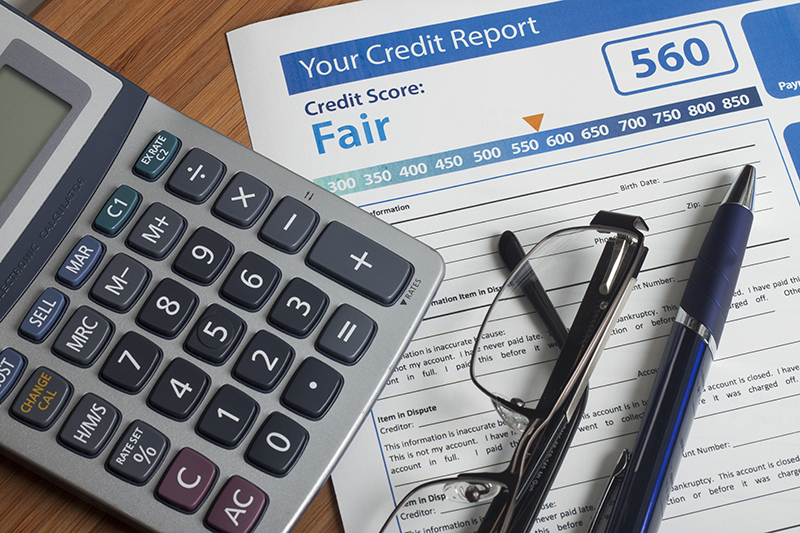Manage Foreclosure Impact On Credit With Ease
Owning a home is a dream for many. If you are lucky enough to have a home, you don’t want to lose it. Unfortunately, this may happen if you delay or stop your mortgage payment. Losing a home is never easy and has both financial as well as psychological implications. However, even worse is the fact that you are left with a very bad credit report. This affects any future mortgages and severely impacts your ability to find another home for your family. Here are some facts and useful information that can help you through this challenging process.
When Will A Foreclosure Start To Affect Your Credit?
A bank or mortgage lender will usually report any payment, which is delayed by 30 days or more. This report goes to the credit bureau. This means that even before the foreclosure process begins, your credit rating is already being negatively impacted. Every time you delay the payment, your credit rating gets a negative report. The foreclosure process may start only after 3 months of non-payment. Even after this, there is room for negotiations. The whole process may take months or even years, depending on how contentious the case is. All this time will have a significant impact on your credit report.

How Badly Will Foreclosure Affect The Credit Ratings?
If you are considering foreclosure, you must understand its consequences on your credit score. Foreclosure has a massive impact on credit ratings, which has to be looked at carefully. If the process is already on, check your credit score, and try to improve it. A foreclosure stays on your credit report for a long time. It is estimated that a foreclosure can drop your score between 150 to 300 points. Moreover, the effect remains for years ranging from 7 to 10 years.

Foreclosure Vs Short Sale
As far as you must try to preserve your credit score and consider alternatives, which can have a less damaging effect. Short sale and deed-in-lieu are two such options. Experts have differing opinions about this, though. Mostly foreclosure and short sale are both very bad for the credit ratings.
A short sale is thought to be slightly better because it is like debt forgiveness. The lender or bank agrees to let go of the difference between the sale and what you borrowed. You may have to pay taxes on the difference. If you can negotiate a short sale or loan modification with the lender’s blessings, you can ask him to mark it as ‘paid in full.’ This will reduce the negative impact on the credit report. If you sign a deed in lieu of foreclosure, the lender may agree to less harsh reports.
How Long Does The Foreclosure Effect Stay On Your Credit Report?
Once you start falling back on the mortgage, the lender reports to the credit bureaus, and it starts reflecting in your credit report. However, an entry regarding foreclosure will appear within a month of the lender starting the process legally. Once it is there, it may take years from the date first missed or delayed payment for the next 7 to 10 years. After 7 years, this record is deleted. Sometimes, if the entry is still there after 7 years, you can go to court and file a petition for it to be deleted.
Though foreclosure negatively impacts your credit, the actual reduction in credit score will depend on many factors. These will include your score before the foreclosure and how many negative entries you have on your credit report. If you are missing other debts apart from the mortgage, that may compound the problem for you.
How Can You Improve Your Credit Score After Foreclosure?
Don’t let the 7-year period between foreclosure entry and its deletion from your credit report go to waste. You can do some things to ensure that you turn your bad credit rating around.
Continue To Use Your Credit Cards as some credit card issuers can close or threaten to close the credit card. Negotiate with them and explain that you will be able to pay their bills. Try to keep the existing credit limit at the same interest rates. Obtaining new credit cards will be extremely hard, so keeping current credit lines will be very valuable to you.
- Secured Credit Cards
Many banks and credit card issuers offer secured credit cards. The initial deposit for these cards is high, and they usually take the limit on the card as the deposit. However, it can be beneficial to you. Your payment history will show that you pay your debts on time. This could be an excellent way to build a good credit history and improve your credit score.
- Local Credit Unions
They generally offer lower rates on mortgages, loans, and credit cards. They are also better at forgiving past mistakes and don’t mind taking on a high-risk applicant. To avail of any of these things, you have first to become a member and get an account. The credit union gets a better sense of your finances this way and does not give much importance to the FICO score.
- Pay All Bills On Time
Late payments will always hurt your credit report, so make sure you pay all your bills on time. Create a positive payment history on all credit lines for bettering the credit score. Credit scores improve even faster when you pay all types of debts, including car loans, credit card payments, bills like cell phone service, internet, etc. on time.
- Wait Before Reapplying For More Debt
Track your credit score and wait until you reach a satisfactory level before applying for any new credit card or any other loan. If the FICO score is high enough, you may get a credit card even with foreclosure, noting on your credit report.
Conclusion
The emotional stress of losing a home is terrible enough and on top of that is the financial stress which can ruin you. It can lower your credit rating considerably and make it difficult to qualify for new loans. The ratings can be affected for years. However, with the right information and the right attitude, it is possible to rebuild your credit score and get back to the pre-foreclosure level. Feel free to contact us for more information. We can help by offering cash for the house and that too within 5 days. Not to forget without any fuss. Contact us today!
